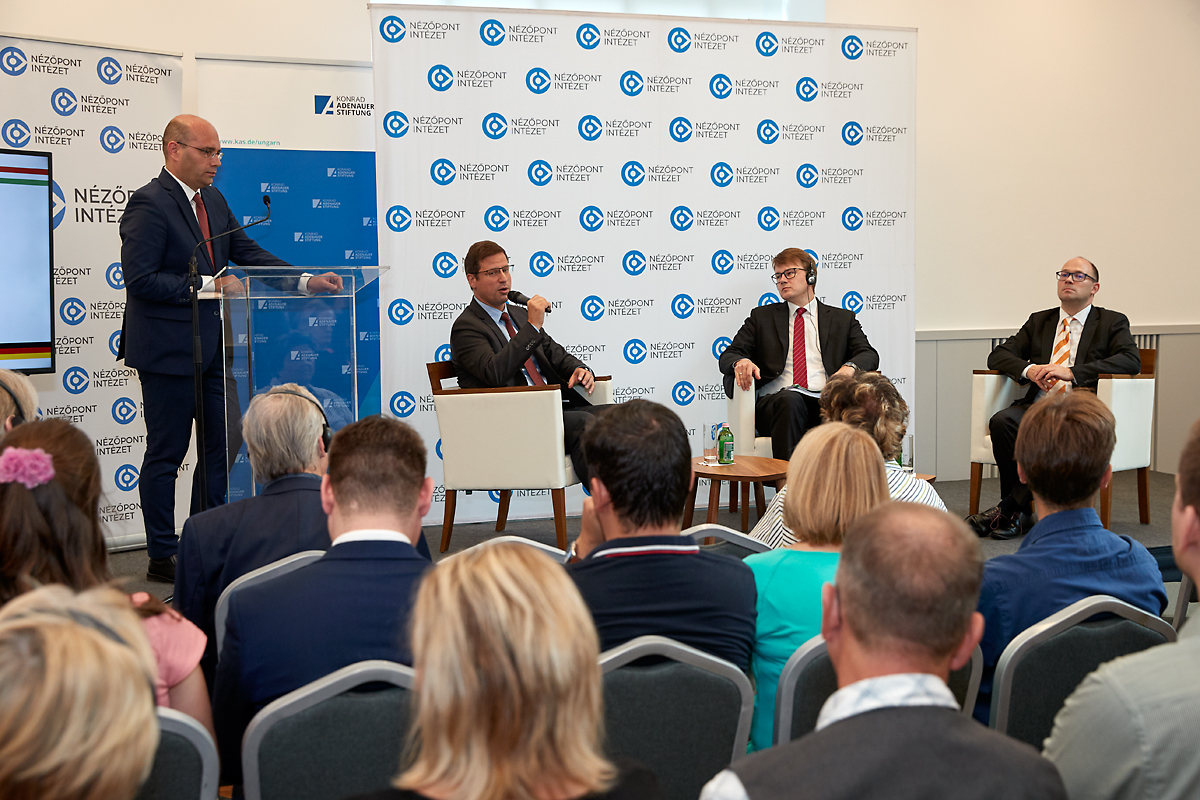The Nézőpont Institute has conducted its seventh Hungarian-German barometer. The survey has examined the image that Germans have of Hungary and Hungarians have of Germany. The economic, cultural, social and political relations between the two countries are traditionally close. Although the ideological difference in political views in recent years does not give this impression, the ties have remained strong. The Hungarian government’s “connectivity” strategy is aimed at further deepening economic relations, but the German governments are also working on this, in order to protect their country’s status as an export superpower.
The representative survey, which was conducted as part of the cooperation between the Hungarian office of the Konrad Adenauer Stiftung and the Nézőpont Institute, were presented by Mráz Ágoston Sámuel, CEO of the Nézőpont Institute. The results showed that an equal proportion of Hungarians and Germans have a positive opinion about the other country (57 percent). The survey also revealed that the mutual perceptions between the two nations are much more positive than the opinion on the current relationship, while there are areas where closer cooperation is considered possible, such as economic growth, energy independence and European-level military defence.
Following the presentation of the Barometer results, Gergely Gulyás, Minister heading the Prime Minister’s Office, shared his thoughts. He stressed that a common European Union is in the common interest of both nations. The foundations for this are in place, as there are common interests, such as rejecting the common debt or increasing competitiveness. The minister pointed out that the biggest obstacle was the lack of diversity in the German media, although the results of the survey were particularly good in terms of the one-sided media environment. According to him, it is important that political differences do not have a negative impact on economic cooperation.
Michael Winzer, Head of the Konrad Adenauer Foundation’s Budapest office, and Bence Bauer, Director of the Mathias Corvinus Collegium Hungarian-German Institute for European Cooperation, participated in the round table discussion following the presentations. Participants agreed that personal contacts are the most important and confirmed the importance of separating political and economic issues.
The entire study is available in Hungarian and German at the link below.
